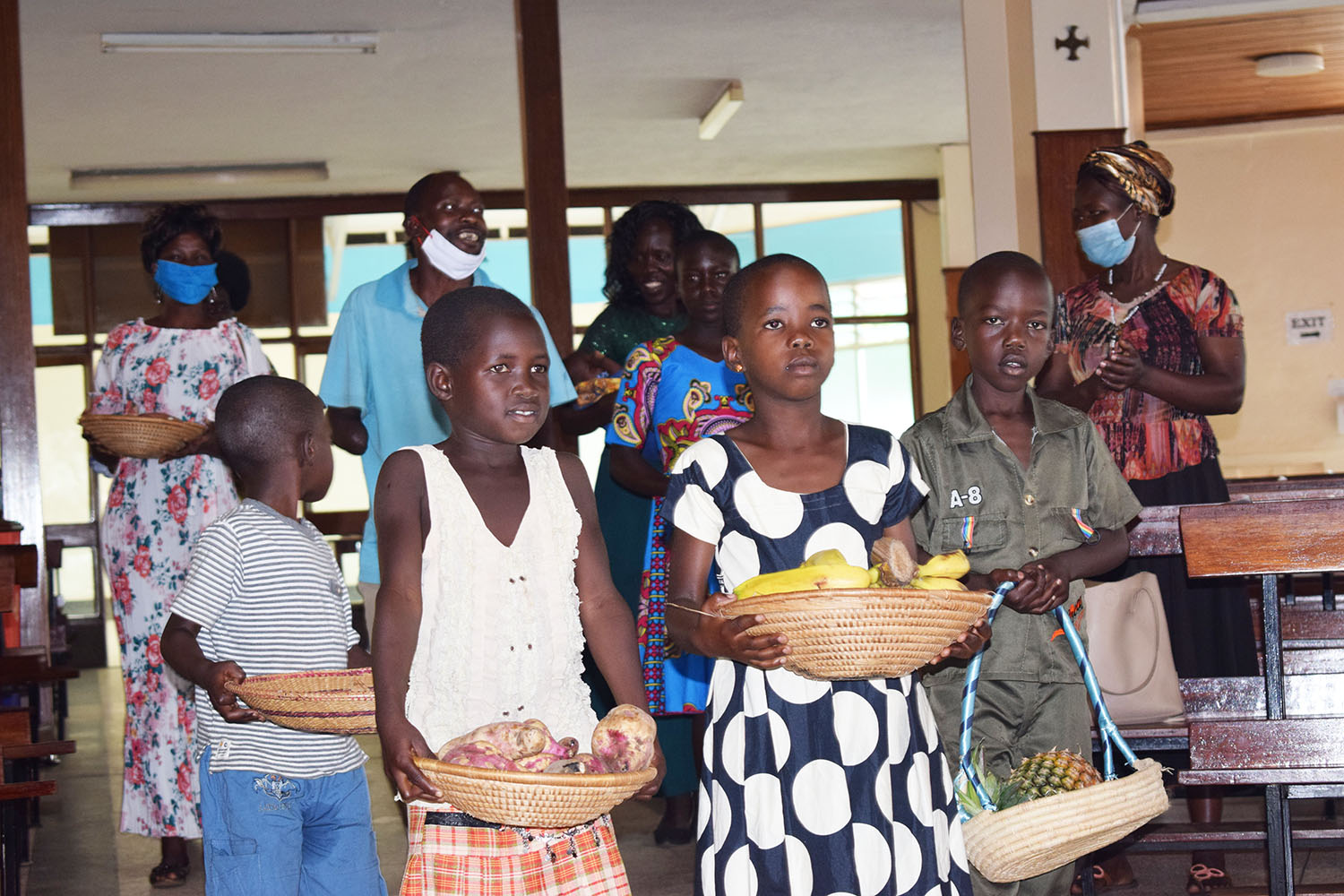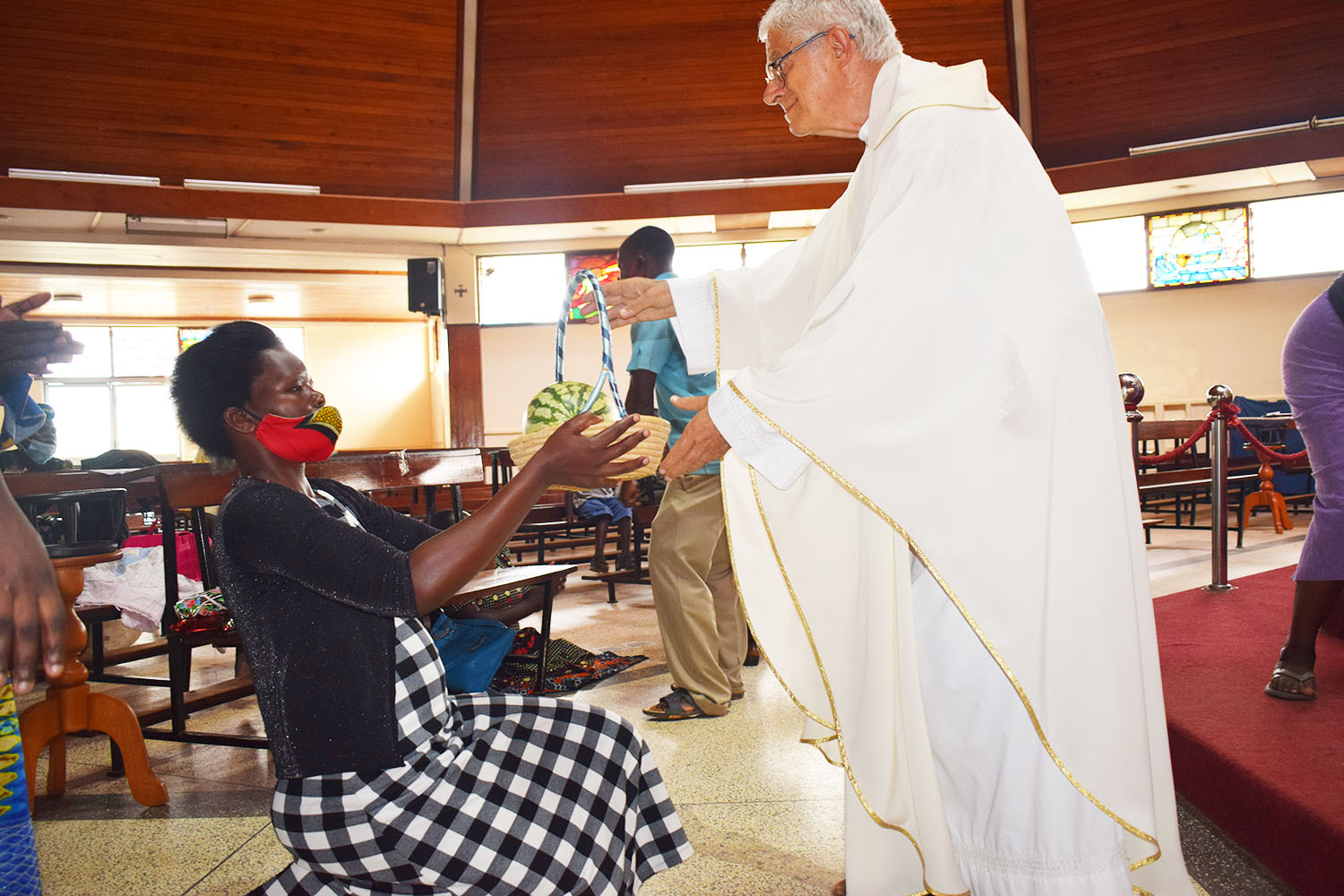Started as a Christian outreach, to provide spiritual support to the needy persons on the streets and slums of Kampala and Wakiso, we continue to be committed to providing whole person care to our beneficiaries and their families. That means going above and beyond to care not just for their physical needs, but for their emotional and spiritual needs as well. The good news is that you don’t have to be a chaplain or have a theology degree to do this. It can be as easy as saying a quick prayer or offering a comforting touch.
Faced with a relatively big workload, we have learnt to do our best using the available resources. Our approaches are diverse in nature as each person we meet is in a different spiritual journey. As we interact, we imagine what it’s like to be in their shoes and ask God for wisdom to support them in the way they need.
- We organize and celebrate life with prayers; we enhance the beneficiary’s access to be part of the church, celebrating together as a community. Joining during faith celebration, in a bid to unite with the community. As care givers, this is another optional activity where, they are at liberty to join in. The catholic community has celebrated milestones like baptism, holy marriage, and church obligatory days to mention a few.
- We demonstrate a Christ-like Attitude. We remind them of the love of God amidst their situation. We encourage love beyond religious barriers, treatin them just like we would love to be, even if we disagree with what they say or how they treat us. We remember that love is not always a feeling; often it’s a choice to smile even if you don’t feel like it, make eye contact, listen well with a compassionate heart, and serve without expecting anything in return.
- We share encouraging words of faith. Strength of faith is in knowing the truth. We share the scripture has an amazing way of uplifting spirits and encouraging people. One of my favorite Bible verses is from Psalm 46:10. It says, “Be still, and know that I am God.” When I share this passage with beneficiaries who are worried, I ask them to be calm, take a deep breath, acknowledge that they are in the presence of God, and that God will take care of them.
- We give them a listening ear and pray with them, we allow them to tell us their stories and cry on our shoulder, avoiding conflict between our burdens with the Patient.
- We ask them How they would love us support them spiritually. One of the easiest way of spiritual care has been by simply asking our beneficiaries how we can support them and then do our best to follow through. For example, for a Catholic Christians, one would love to see a priest before they go into surgery; we respect our beneficiaries and call as requested. Although we do not promise our patient anything that we are not sure of delivering. Where the requested option isn’t available, we always get a closure option or our volunteers /staffs pray with the beneficiaries.
- Except for faith we do not have knowledge or access to support, Equality Approach Uganda has continued to support beneficiaries within their own faith. The point of providing spiritual care has not been targeted to converting beneficiaries to the organization based religion; but rather to connect them with the divine contact, if they want it. Our focus remains, to demonstrate the love and compassion of God, but not attaching support to what they should believe.
- We use the Gifts of Presence & Touch. Early in our support, we struggled to support beneficiaries to feel in the presence of God. We later realized, in such a moment, they just want to know that someone is there who cares. Our presence alone provided this care to a person who is hurting. We were simply representing God in that moment by just being there. Sometimes, a touch is another thing that helped provide this reassurance.
- We partner with other Spiritual care givers. Above all, informed spiritual team is always at our contact list. With a priest at the front line, we continue to call talented caregivers to join our group for a comprehensive support.
- We listen to their fears & Concerns without going into our own Stuff. When someone starts sharing their concerns with us, it’s easy to say, “I know how you feel,” and then launch into a story about one of your own experiences. Our team is urged to remember though, that we are there to care for the patient and not the other way around.
- To provide emotional and spiritual support, we’ve found it’s much more helpful to name the emotions of the patients or family members expressing and then ask a follow-up question. Like,” I hear a lot of fear in your words. Can you tell me where that’s coming from?” Or, “You seem to be very down. Can you share with me what’s going on? “We don’t get offended if they don’t want to open up to us. Instead, we just take it as a sign that the timing isn’t right.
“ As care givers, this is another optional activity where, they are at liberty to join in. The catholic community has celebrated milestones like baptism, holy marriage, and church obligatory days to mention a few.”






Leave a Reply